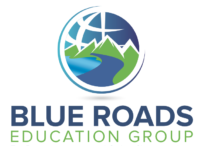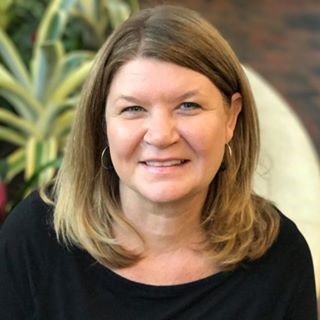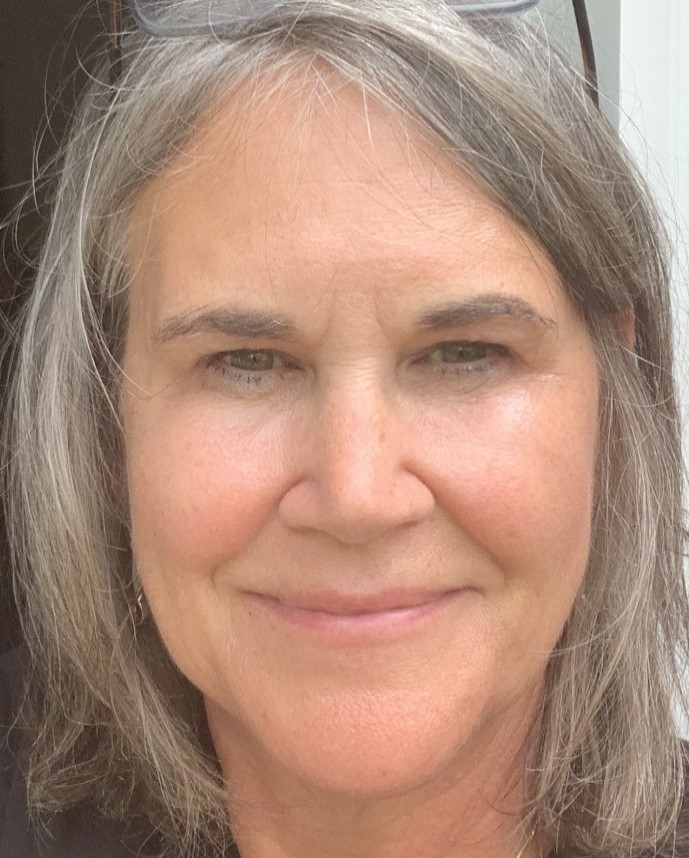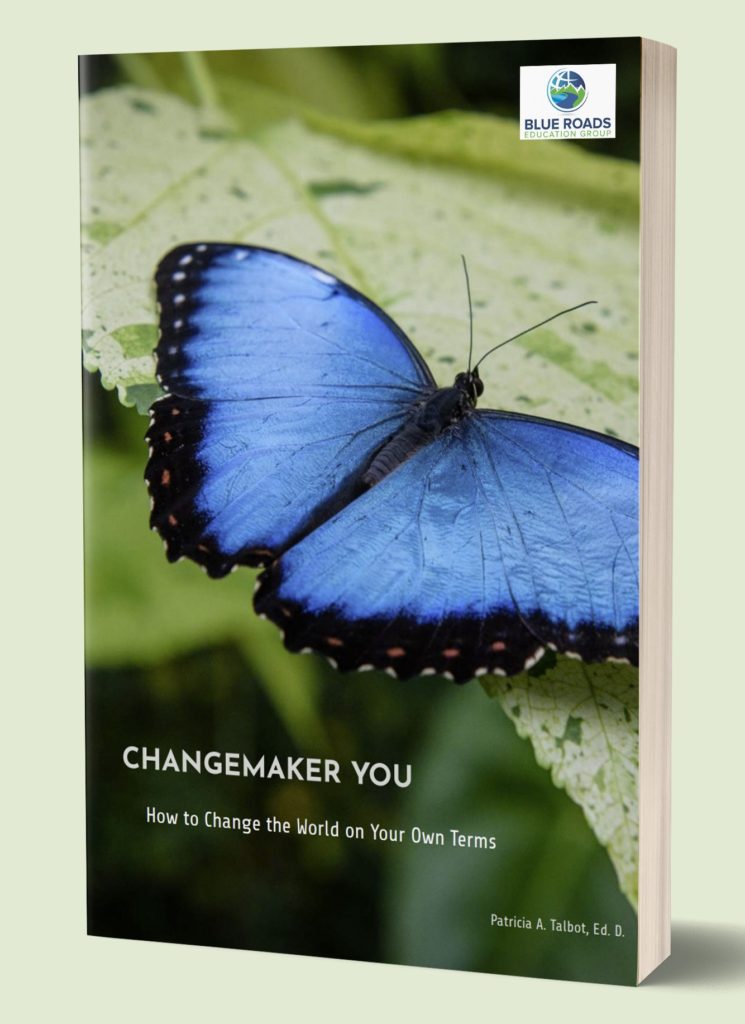About the Author
Patti cultivates homegrown changemakers prepared to step into their power and work with others to create the world they want to live in. Get in touch to find out how you can grow the social changemaker in yourself and those you serve with Blue Roads Changemaker YOU.
I first met Connie Rensink as a classmate in World Savvy's Global Competence Certificate (GCC) program. (You may remember we featured Founder and CEO of World Savvy, Dana Mortenson, in this series a while back.) Connie and I hit it off right away because of our common love for international travel, elementary-aged kids, and our enthusiasm for learning at every stage of life. After more than a year of online classes, we finally met up in person for the first time in Quito, Ecuador a day before connecting with the rest of the GCC group for a couple of weeks of educational travel and fieldwork in an Afro-Ecuadorian community. Connie quickly became a friend and a colleague who has enriched my life and informed my perspective ever since.
Tune in below to learn Connie's special take on “Homegrown Solutions for a Patchwork World”. Check out the video, listen to the podcast, read the summary or enjoy all three!
Homegrown Connie
Connie grew up in Texas, first in a small town, but later in the metropolitan city of Fort Worth. She says her early childhood exposed her to a lot of diversity, but that changed when she moved to Washington State in her teens. Once she headed south again for college at Texas Christian University, Connie once again enjoyed being surrounded by the diversity of people and ideas she had appreciated as a young child.
At TCU, Connie pursued a degree in business she thought might lead her into politics or public service. As the oldest of three, she was a natural leader who found ways to contribute in every setting. After some years in the corporate world, Connie found a calling toward education.

I was at a Chamber of Commerce meeting when some little kids came in and sang songs. I looked at my friend and asked, “What are we doing here? Why aren't we teachers?”
She really meant it! Very soon after that, Connie went through an alternative certification program to become a teacher. She had some idea of what she was getting into because she'd spent some time volunteering in her son's school as co-facilitator of a character development program. She soon became a kindergarten teacher eager to share her love for learning.
One of my first strengths is to be a learner and one of my other strengths is to be an activator!
Connie lives her roles as learner and activator very intentionally. She later moved to second grade and got a master's degree in reading and English as a Second Language. Along the way she embraced every opportunity she could find to learn and travel internationally to enrich her teaching. She traveled to China for a course on multiculturalism, attended numerous global forums, and went to India on a Fulbright-Hayes scholarship. This work exposed her to new perspectives and an understanding of the then Millennium Development Goals – the precursor to the Sustainable Development Goals (SDG's) also developed by the United Nations. This got her thinking about how the goals established by the U.N. “could create a framework for students to learn about the world.”
Connie describes a “light bulb moment” when she attended a CTAUN – Committee for Teaching about the United Nations – conference. The focus of the conference was human rights and children's rights. She had a profound realization.
I want to teach kids this love of learning, but I really also want to teach them about different perspectives and open up their minds to the idea of global issues and having an awareness in the world.
She was inspired to work with other teachers to found Club We Can, an after school human-rights-based service learning club for 3rd-6th graders which is still active (10 years later!). This drive led her toward the Global Competence Certificate Program where I was fortunate to meet her. She describes GCC as the turning point that moved her beyond the classroom into the kind of leadership that would allow her “to impact more than one classroom.”
I decided to start a global education consultancy.

In fact, one of her first clients was World Savvy where she helped to promote that GCC program. Her work as a consultant led her toward greater opportunities to further promote the SDG's as a framework for integrating those global competencies into the classroom. Connie emphasizes:
Global competency is not about teaching something different. It's how you teach what you teach so that children and adults have the skills and the attitudes that they need to operate in our interconnected world today.
Solution-Focused Connie
Connie's passion for global competency education plays out in the ways she works with people as individuals and in groups.
Different perspectives are valuable, and they make our solutions stronger.
Sometimes parents question the importance of teaching their children about the world. She reminds them of the importance of seeing issues from various perspectives.
You have one perspective. I have a different perspective and we might both be right. We can bring those different perspectives to what we're working on together and make our solution even stronger.
Connie's awareness of the limitations of her experiences as a “middle class white woman” causes her to approach interactions with generosity and humility. She asks herself and others important questions like:
How do we bring in the points of view that are not from the western world?
How do I honor and respect perspectives from people of color?
Her reading and reflections on issues of racism have helped her to speak up for diversity and create intentional opportunities for herself and others to continue learning while her current work with iEARN (The International Education and Resources Network) allows her to help connect classrooms around the world so they can do projects together online, often times related to the Sustainable Development Goals. Other projects are specifically focused on building cultural understanding.
It is so critical that people build those one on one connections.
She shares recent examples where children from several partner schools in African countries reached out in concern for their partner schools in the United States when Florida experienced a flurry of hurricane activity. Likewise, she cites the depth of care and concern for students in Ukraine when students from elsewhere in the world have genuine relationships there.
It really makes it personal…and makes people think about their actions and how they ripple and impact people across the world.
This “personal connection” theme resonates across settings for Connie.

I am part of an organization called DKG.
DKG (Delta Kappa Gamma) is an honor society for women educators, and we have members in 17 countries across the world.
Connie's travels to places like Costa Rica, Guatemala and many states across the U.S. through her work with that organization allow her to practice her own global competencies. When she's sitting on planning teams or attending conferences, she says she tries to listen diligently and synthesize information. She asks a lot of questions and jokes about her facial expressions that tend to give away her thoughts.
I've been told not to ever play cards because my face will read if I've got a question or I'm concerned.
But in reality, it's this curiosity and expressiveness that have helped her to build relationships across cultures that allow the kinds of deep connections required for any real progress to take place.
Connie's Patchwork
As you can see, it's difficult to separate out the “patchwork” theme in the Blue Roads Changemaker Framework in Connie's story because nearly everything she does relates very directly to the power and importance of diverse perspectives. The iEARN organization where she now serves as Director of Global Education and Outreach for the US office connects educators and classrooms in over 140 countries so they can collaborate on projects giving them the skills and experiences they need to be a part of that patchwork.
Sometimes for them, it's English language learning. Sometimes for them, it's about their students having the different perspectives from somewhere else or presentation skills …
And sometimes it's about learning cultural differences and values.
Being on time for a meeting is not as critical in some cultures because they're really thinking about relationship building. If the meeting they were in ran long, they're not going to just stop because they have to run to another meeting because it's the relationship piece that's really important to them.
By broadening young minds to consider how to function successfully and respectfully in a new environment, they develop the potential for cross cultural problem solving.
…Moving beyond respectful to celebrating those differences and really playing to the strengths of each group.

Changemaker Connie
Connie uses the “ripple analogy” we embrace here at Blue Roads quite frequently to describe her own work.
She shares an example of a recent digital literacy project and asks, “How do I hope that this work will ripple out and make things better?” In this particular exchange with 40 educators across the world, the work centered on the concept of “digital citizenship.” This was a new concept for many of the participants. While cybersecurity was one important theme, the project was rich in other themes like:
- the health impacts of technology on mental health, physical health, and emotional well-being
- how digital platforms make a difference in the world and
- how students can take their learning back to their own communities.
One culminating project in Mexico involved students helping elderly adults learn to protect themselves from online scams.
It was just a perfect example of how I hope that the work that I do, connecting people with each other (across organizations) inspires people with the information and the knowledge and the growth and perspectives that they receive to carry that forward.
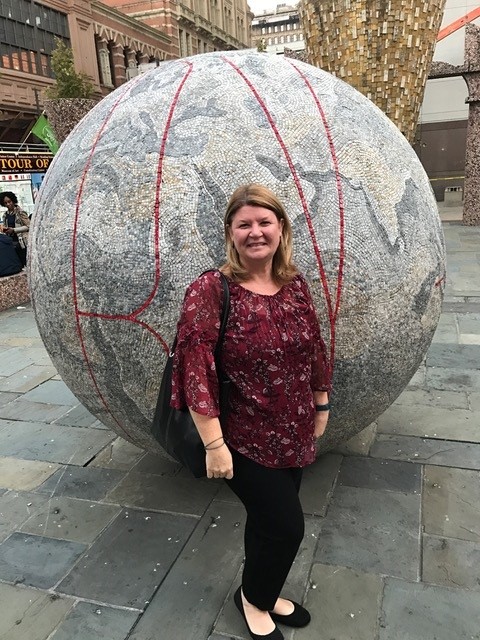
You can connect to support, get involved and connect with Connie's work through DKG here and at iEARN here. Both organizations are helping to make the world a better place by connecting educators and students with one another with a wide range of opportunities. No matter your role inside, or completely detached from, a school setting, Connie has some important advice for all of us.
I really encourage you to pursue some global experiences. That doesn't mean that you have to leave your country where you are. That can mean that you read about things that are happening in the world. That can mean that you look at what the issues are locally that you care about… “Glocal” means when there are issues that are happening with water in your community, there are issues that are happening with water across the world.
Connie reminds us that we can look for solutions to local issues elsewhere in the world. We don't have to start something completely new.
There are amazing organizations that are already out there and mobilized and working. See where your energy can fit in and support so that we aren't operating in all these little silos… We can bring our energies together to make the most impact.
When Connie is asked what's next for her, she typically responds:
I'm not quite sure where it's going to finally lead, but as long as I'm making a difference for one person that can then ripple.
As long as I feel good about the self-reflection that I'm doing, I know I'm on the right path.
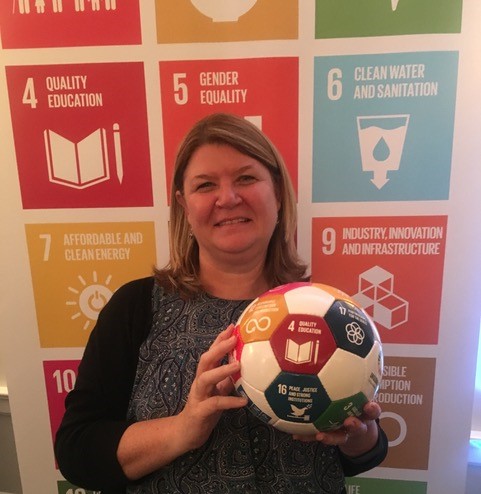
It wouldn't be appropriate to try and “cherry pick” which of the Global Goals Connie's work aligns with most because, like me, she's passionate about activating people of all ages to engage with ALL of them! Won't you join her on the Changemaker's Journey? Check out the list below to find where you fit in.
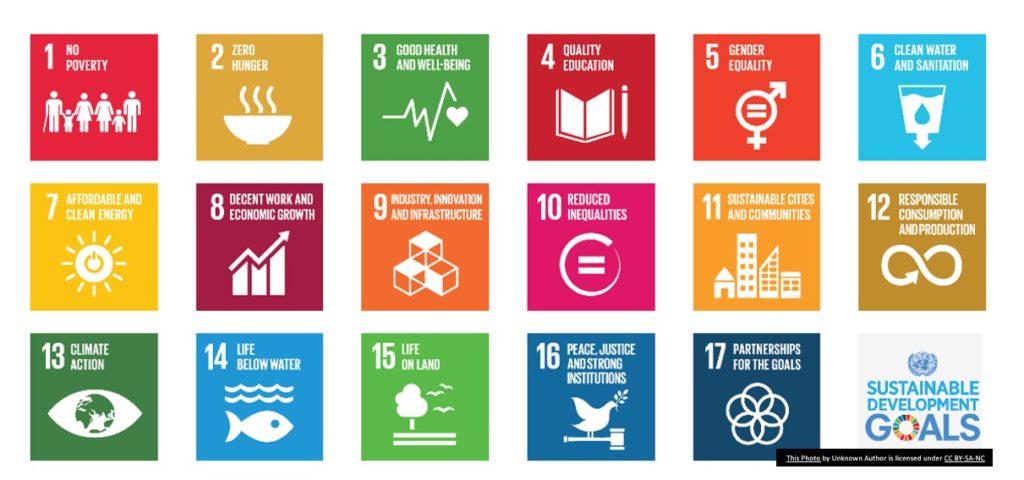
I hope you'll get in touch to let us know what YOU and people you know are doing to realize these Global Goals by the year 2030. Surely, we can do it if we all work together and take our place as Changemakers!
CHECK OUT our CHANGEMAKER YOU course to help you get started today!
Patti cultivates homegrown changemakers prepared to step into their power and work with others to create the world they want to live in. Get in touch to find out how you can grow the social changemaker in yourself and those you serve with Blue Roads Changemaker YOU.
